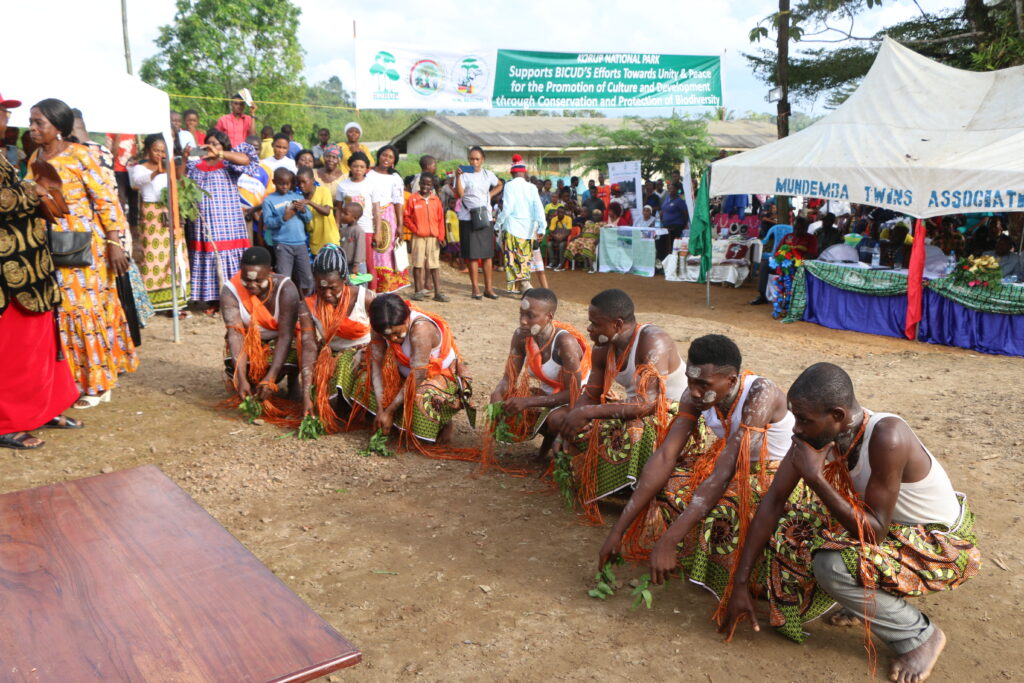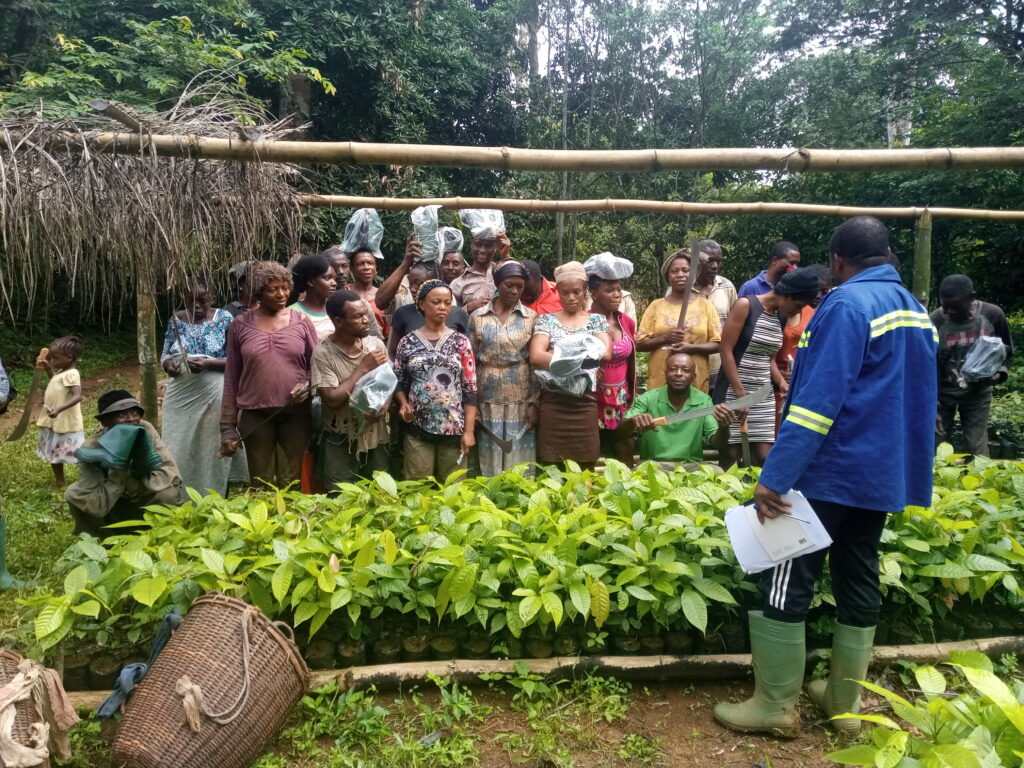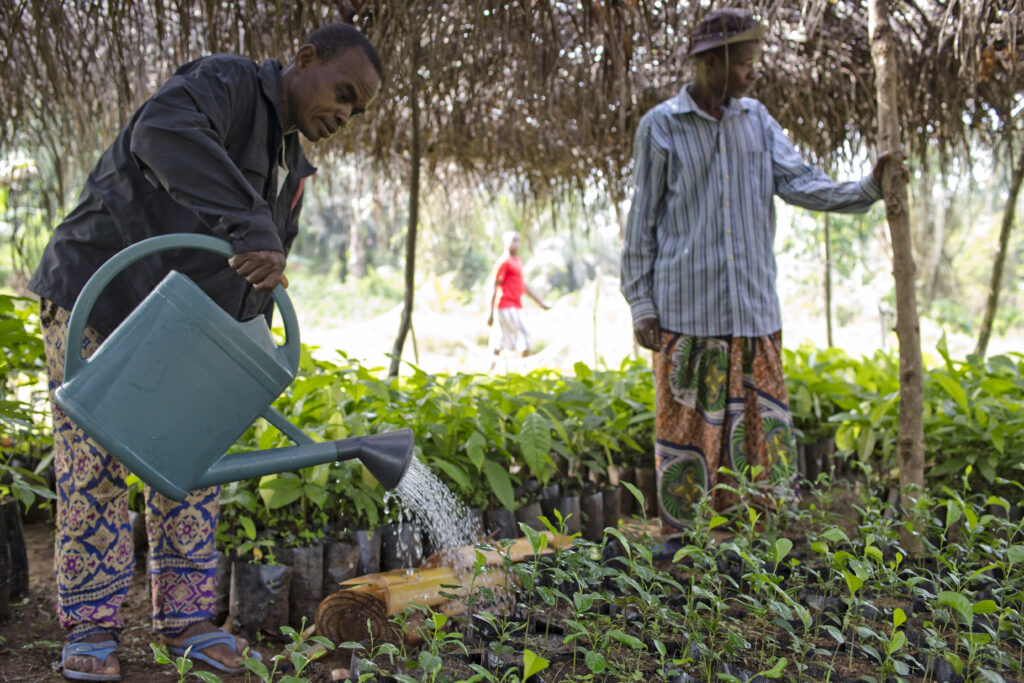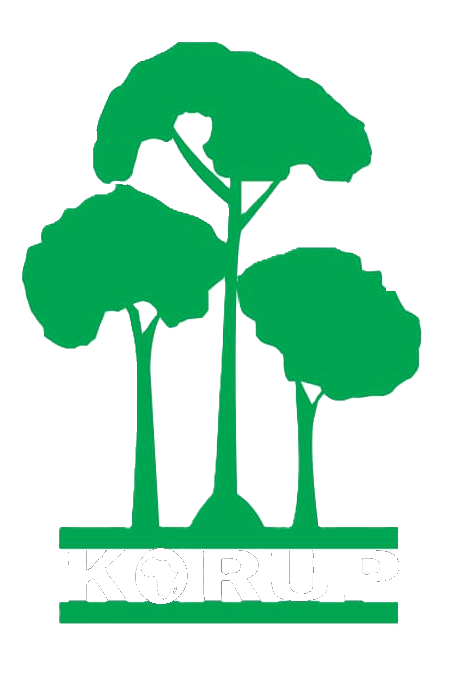
Korup National Park places a high value on collaborative conservation efforts, recognizing that the involvement of local communities is crucial for the effective management and preservation of its unique ecosystems. Here’s how the park engages with communities to achieve sustainable conservation goals:
Community Involvement in Decision-Making: Local representatives participate in advisory councils and management committees to integrate local knowledge into conservation plans.
Co-Management Agreements: Formal agreements outline shared responsibilities between park authorities and communities, fostering a sense of ownership in conservation efforts.
Sustainable Resource Management: Training and support are provided for sustainable agriculture, forestry, and fishing, balancing conservation with community livelihoods.
Capacity Building and Education: Educational programs and workshops raise awareness and build skills in conservation and sustainable practices.
Participatory Research and Monitoring: Community members engage in wildlife monitoring and ecological research, contributing valuable data and traditional knowledge.
Conflict Resolution and Mediation: The park facilitates dialogue and mediation to resolve conflicts related to resource use, developing mutually beneficial solutions.
Benefits Sharing and Incentives: Economic incentives, revenue-sharing from tourism, and support for community development projects encourage active participation in conservation.
Key Actions:

Korup National Park is committed to fostering a culture of conservation through comprehensive educational programs designed to raise awareness and build capacity among local communities. These programs are tailored to engage different segments of the community, from schoolchildren to adults, ensuring that everyone has the knowledge and skills needed to contribute to the park’s conservation efforts. In local schools, the park conducts environmental education initiatives that incorporate interactive lessons about biodiversity, ecosystem dynamics, and the importance of sustainable practices. By integrating these topics into the school curriculum, children learn to appreciate the natural world and understand their role in preserving it from a young age.
Additionally, Korup National Park offers workshops and training sessions for community members, focusing on practical conservation techniques and sustainable resource management. These sessions cover a range of topics, including wildlife monitoring, sustainable farming practices, and the use of alternative energy sources. By equipping locals with these skills, the park empowers them to manage their natural resources more effectively and sustainably. The educational programs also include outreach campaigns that promote conservation awareness through community events, such as eco-fairs and public lectures, ensuring that conservation messages reach a broad audience. These initiatives not only enhance the community’s understanding of environmental issues but also foster a collective sense of responsibility toward protecting Korup’s unique biodiversity.

Korup National Park prioritizes local community engagement through robust employment and training programs, ensuring that conservation efforts are deeply rooted in the community. The park provides various job opportunities to local residents, ranging from park rangers and eco-guides to administrative and support staff positions. By hiring locally, the park not only supports the local economy but also fosters a sense of ownership and pride among community members in preserving their natural heritage. These employment opportunities are crucial for creating sustainable livelihoods, reducing dependence on unsustainable practices, and enhancing the community’s commitment to conservation.
In addition to employment, Korup National Park offers comprehensive training programs aimed at building the capacity of community members in conservation and sustainable resource management. These programs include hands-on training in wildlife monitoring, anti-poaching techniques, sustainable agriculture, and ecotourism development. By equipping local residents with these skills, the park ensures that they can effectively contribute to conservation efforts and benefit from sustainable economic activities. Moreover, the training programs often include workshops on environmental education and awareness, enabling participants to become advocates for conservation within their communities. This dual focus on employment and training not only strengthens the park’s conservation initiatives but also empowers the local population, fostering a collaborative and sustainable approach to preserving Korup’s unique ecosystems.
needhelp@agrool.com

+ 92 666 888 0000
Welcome to Korup National Park, Cameroon’s first rainforest national park, established in 1986. Spanning 1,260 km², it borders Nigeria’s Cross-River National Park and includes parts of Ndian, Manyu, and Kupe Muanenguba divisions.